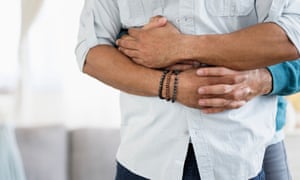Masculinity is in crisis. That message resonates loud and clear from the mainstream media. Hardly a day goes by without straight men debatingwhat it means to be a man now that women are becoming more powerful and male privilege is being eroded.
Over the past fortnight, some have even whined about the widespread outrageignited by women who have been sexually exploited finally taking a stand against their oppressors.
Well, first of all, they need to get over themselves. But what about gay men and our relationship with our masculinity? Why are we usually left out of the discussion about what it means to be a man? Because it strikes me that our relationship with our masculinity is much more complicated, intense and potentially troubling.
Yes, as a gay man I enjoy the privilege of being male in a patriarchal society that for some reason values my genitals above a woman's. But I've spent much of my life being made to feel like I'm less of a man for being gay. Which is why I commissioned a survey for Attitude magazine about masculinity. Some 5,000 readers responded, and some of the feelings they expressed are surprising.
A staggering 69% of them said that, like me, they've been made to feel less of a man for being gay, bisexual or queer. Perhaps even more worrying is that 41% of them said that at some point they've thought they are less of a man because of their sexuality.
If we look at the reasons why this feeling might exist, a shocking 92% of those surveyed said they think effeminate gay men are still made fun of in the mainstream media. And 68% of them said they've been on the receiving end of homophobic abuse that has specifically ridiculed their femininity. Like so many gay men, I can remember the limp wrists, mincing walks and camp impressions the straight boys did of me at school – although these can function as insults only if they're based on an understanding that being female is somehow inferior to being male.
Perhaps unsurprisingly, more than half of those surveyed said they've tried to adapt their behaviour or appearance to seem more masculine while around straight people. Perhaps even more intriguing, though, is the 24% who have tried to come across as more masculine when communicating with other gay men on a date or a dating app. This shows just how complicated our relationship with masculinity can be, and suggests that our own insecurity about feeling like less of a man can be so extreme that some of us won't relax even among others who have been subjected to the same experience.
It also hints at another layer of complication: that we've been made to feel disappointed in our own lack of masculinity while being encouraged to find signs of traditional masculinity attractive in others. An incredible 71% of those surveyed say they've been turned off by signs of femininity in a man. Clearly it isn't just mainstream society that is repulsed by femininity – gay men are too.
And I'm intrigued by the idea that still persists, whereby a gay man who is active in the bedroom is considered to be more of a man then his passive sexual partner. "Who's the man and who's the woman?" is a question many gay men have been asked about our sexual relationships, although arguably this is much less commonplace than it used to be. Yet 75% of our readers admit to making assumptions about someone's preferred sexual role based on their perceived masculinity or effeminacy. This suggests why gay men who prefer the passive role sexually are often made to feel ashamed of this: because they see it as being linked to femininity.
There it is again, good old-fashioned misogyny. Who'd have thought it would be the one clear message that would emerge from a survey about gay men's relationship with their masculinity?
When I started work on this issue, I expected to be dealing with a subject of intense interest to our gay readers but of little relevance outside our community. What I discovered was the opposite. And the conclusions have left me with an increased respect for women.
Because yes, being gay can be tough. But at least we're men. Just how difficult must it be to actually be a woman, and to go through life every day being made to feel inferior?
I feel a new sense of privilege that I'll never have to find out.
• Matt Cain is editor-in-chief of Attitude. The magazine's survey edition is published on 9 November




No comments:
Post a Comment